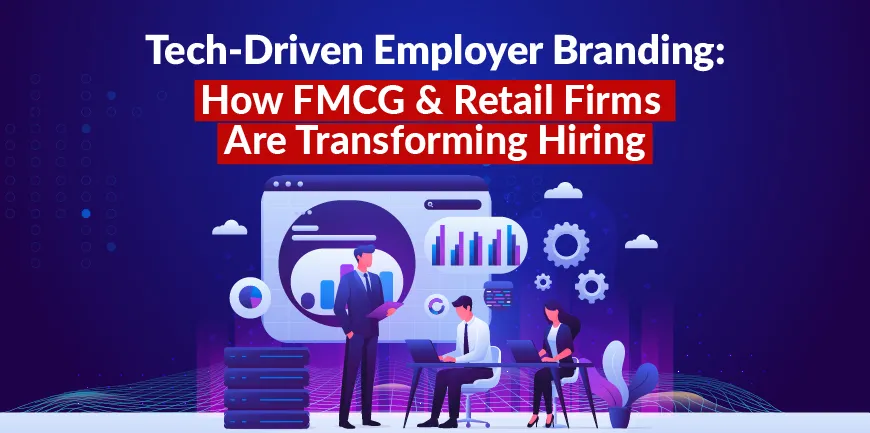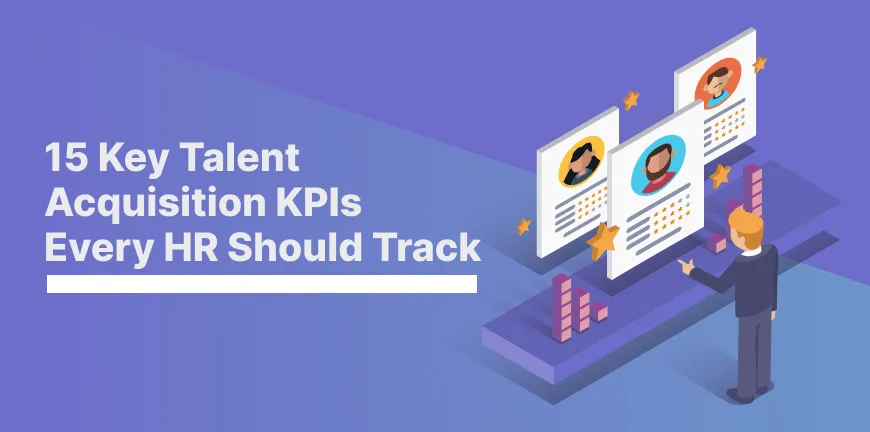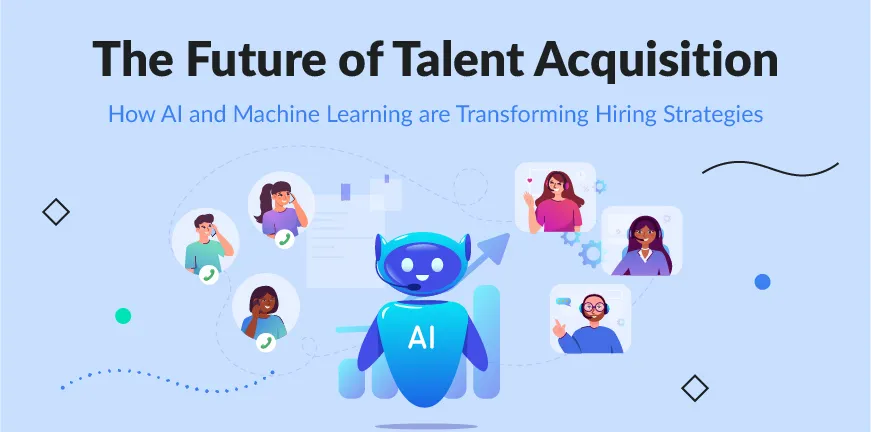
Payroll Software vs. Payroll Services: How to Choose?
27/01/2026
What is an Administrative Services Organization (ASO)? Definition, Pros & Cons
28/01/2026- What Is Talent Acquisition?
- Why Is Talent Acquisition Important for Organizations?
- What are the differences between Talent Acquisition and Recruitment?
- What Are the Key Steps in the Talent Acquisition Process?
- What are the Different Talent Acquisition Models?
- What Are the Benefits of Talent Acquisition?
- What Are the Common Challenges of Talent Acquisition in 2025?
- What Are the Most Effective Talent Acquisition Strategies in 2025?
- How to Use AI in Talent Acquisition?
- Metrics for Measuring Talent Acquisition Success
- What are the Acquisition Tips and Best Practices?
- What are the latest Trends in Talent Acquisition in 2025?
- What is included in a Talent Acquisition Checklist?
- Key Takeaways
- Frequently Asked Questions (FAQs)
As the former CEO of Porsche, Peter Schutz once said, “Hire character. Train skill.” Acquiring talent is not just about searching for individuals, recruiting them, and placing them in companies; it’s also about developing their skills and fostering their growth.
This is 2025, and in today’s fast-paced, tech-fuelled world, it is more about attracting the right talent, hiring them, and nurturing them to facilitate and build long-term relationships.
It is about your business, focusing on creating a strong workforce that is all set for the future. It is the power that can guarantee your company reaches the pinnacle of success, keeping your competitive edge intact.
This talent acquisition guide will walk you through the various stages of talent acquisition, what it means, the challenges, and the latest trends.
What Is Talent Acquisition?
Talent Acquisition (TA) is a well-planned process of searching, identifying, and hiring skilled individuals to meet the requirements of a business. According to a theory by Professor Benjamin Schneider called Attraction, Selection, Attrition, the three powerhouses govern talent acquisition:
1. Attraction
There will be several organizations looking for skilled talent, but a job seeker will get attracted to only one organization after they have gauged the workplace and learnt enough about the firm. It is what appeals to them and becomes the differentiator that will matter, and the appeal is based on factors like a robust employer brand, the treatment of employees, work culture, etc.
2. Selection
The second important force of a talent acquisition process is selecting specific professionals. After they have applied, selecting candidates is the core responsibility of enterprises, as they must ensure that the selected individuals cater to the job role and objectives of the firm.
3. Attrition
The third and final important pillar is retaining the candidate in the long term. After recruitment, if the candidates don’t fit the organizational mould and are uncomfortable with their job roles, they will quit. It is up to organizations to select candidates who are proper fits and can drive progress with their talent and resilience.
Why Is Talent Acquisition Important for Organizations?
As we know, the job market is unstable today, and the importance of talent acquisition becomes imperative. According to a survey, around 75% of employers worldwide have reported difficulties in finding skilled talent. It has increased by 36% since 2014. The following are some of the reasons why it’s important:
1. Builds Competitive Manpower
Organizations perform well when they have the right kind of employees in the right job positions. Strong teams drive businesses successfully if they attract the best-fit professionals with the right skills and values.
2. Revamped Employer Branding
Attracting top talent and engaging them consistently can immediately enhance an organization’s brand image. A well-coordinated and handled headhunting process where candidates are prioritised can work positively for firms.
3. Cost Efficiency Guaranteed
Organizations can save on the costs of employee leaving organizations if skilled and suitable ones are hired. The expenses are usually spent on recruitment and training processes.
What are the differences between Talent Acquisition and Recruitment?
Let us have a look at some of the key differences between Recruitment and talent Acquisition.
| Aspect | T A | Recruitment |
| Focus | Long-term thoughtful planning | Short-term, immediate hiring requirements |
| Goal | Build a talent bank for future roles | Fill current job roles quickly |
| Approach | Dynamic, continuous process | Conscious work-based process |
| Scope | Includes employer branding, workforce planning, and onboarding | Restricted to sourcing, screening, and hiring |
| Candidate Relationship | Focuses on fostering long-term relationships | Engages candidates only during job openings |
| Technology Use | Aggressively uses analytics, CRM tools, and AI for forecasting | Primarily uses ATS (Applicant Tracking Systems) |
| Branding & Engagement | Builds and maintains the employer brand | Minimal focus on branding |
| Involves | Marketing, data analysis, succession planning, culture fit | Job posting, screening, interviewing, and offer management |
| Ideal For | Organizations planning for growth and long-term success | Immediate or one-time hiring needs |
| Outcome | Sustainable, future-ready workforce | Quick fulfilment of vacancies |
What Are the Key Steps in the Talent Acquisition Process?
To take talent acquisition in HRM forward, organizations must follow certain relevant steps. Let us look into some of them:
1. Identification of Objectives
Your company must work out and draft the main goals and future needs clearly. You first need to analyse your business strategies and understand the employee needs for the future and the kind of roles you need to fill.
You also must decide the skills you would require for filling roles. Most importantly, you need to keep the succession formula ready if required.
2. Positioning of Company Image
If you, as a company, want to draw talented professionals, you need to enhance your brand image. You need to put yourself out there as a company that is true to its values, culture, and integrity.
You need to communicate with potential candidates through channels and social media platforms as to why they should be a part of your organization. What are the value propositions you have to offer? Display your company’s functions and character to the fullest.
Use Case- Unilever, the highly reputed multinational consumer goods company, has created a brand image that appeals mostly to Gen Z and millennials through their carefully crafted testimonials, career stories. Their focus has been on the worldwide impact on food security, climate action, and gender equity.
3. Finding Skilled Candidates
To attract a pool of qualified individuals, you need to tap the right talent network, utilize social media, other platforms, and databases. You must also encourage employee referrals to reach out to desirable candidates.
4. Evaluation and Shortlisting
After searching for perfect candidates, it is time to screen and filter them. The first step is to assess the applications and CVs.
Then the interview and screenings are conducted. After initial rounds of screening, a few candidates are shortlisted.
The main stages are conducted with teams and hiring managers, where both technical and behavioural assessment is done through various modern methods.
5. Offer Post Selection
After selecting the suitable candidate, organizations will accept them and release an offer. The offer is extended after background and reference checks are conducted.
Candidates will find a competitive offer ensuring and thereafter, discussions and negotiations on salary packages are facilitated.
6. Integrating New Hires
Your organization’s reputation as a good employer is established when a flawless onboarding process is facilitated.
The smooth and effective merger of a new hire into your organization is done by pre-readying the onboarding documents, introducing them to teams, departments, and company traditions.
Offering mentorship and training and presenting a clear roadmap to new employees boosts their morale and motivates them to be productive from the get-go.
What are the Different Talent Acquisition Models?
To provide you with insight into the kind of headhunting that will be advantageous for your business, let us explore a few significant models:
- In-house Model- In this model, companies create their internal talent management teams, who plan and execute the hiring process, having full control.
- Recruitment Process Outsourcing (RPO)- A company here outsources a few or the entire recruitment process to an external provider. This enables companies to get access to expertise, tech-enabled talent acquisition tools, etc.
- Hybrid Model- This model is a mix of both in-house and hybrid models. It is useful for companies that require flexible hiring options and niche skills for specific roles.
- Department steered Model- Every department independently manages its recruitment procedures. This is convenient for small or specialized firms.
- Centralized Model-This model is suitable for large or mid-size organizations where there is a team dedicated to talent management that handles recruitment across departments.
- On-Demand TA Model- Organizations in this type of model essentially partner with third-party recruiters when there is a project-based requirement, for specific tasks and demands.
What Are the Benefits of Talent Acquisition?
Implementing an effective talent acquisition plan can benefit you and your business exponentially. Let us check out some of the benefits:
1. Expedited Hiring Process
A headhunting process can be facilitated quickly and smoothly with modern analytics tools. The tools enable the creation of a refined and extremely focused talent bank.
The modern techniques not only improve the experiences of candidates but also those of employers. The automated stages of recruitment save the precious time and money of employers.
2. Bolster Employer Branding
According to the latest studies and statistics, firms with a robust employer brand achieve a 50% reduction in cost-per-hire and 28% lower turnover.
You, as a company, can automatically elevate your reputation and create a positive impression if your recruitment process improves candidate experience.
Your TA team, while interviewing candidates, knowing about their qualifications and skills, also focuses on specifying the company goals, positive aspects, and the role, making candidates want to join the company.
Leaving a lasting impression on candidates can help you draw and keep top-notch talent.
3. Maintaining Quality Talent
Implementing an impactful hr talent acquisition plan will be a boon for your company as you will build a strong and sturdy talent pool.
The tech-enabled and automated steps of your process, from handling interviews to managing candidate applications, ensure that there is a smooth and continuous inflow of skilled professionals.
TA models offer a set of dynamic tools to create and sustain a robust pool, driving the success of your business.
4. Big Support for Succession Plan
Well-thought-out talent acquisition methods can uplift your company’s plans, as you will be recruiting professionals who have the potential to become future leaders and team builders.
Focusing on long-term objectives, talent acquisition teams help build solid pipelines that can be helpful to your company in times of crisis or sudden vacancies.
5. Interdepartmental Collaboration
A structured TA plan ensures that every department in your organization is putting equal effort and working in tandem for a common goal.
Making this system work requires tremendous effort, including implementing transparent communication systems, smooth coordination between teams, etc.
The collaboration must spread across the organization from CEOs to interns. Nurturing collaborative teams is a crucial element for the success of any business.
What Are the Common Challenges of Talent Acquisition in 2025?
Talent acquisition in 2025 is evolving in response to the changing global economic landscape. However, recruitment strategies are still getting impacted by some of the common issues, and you, as a business, must know what the significant challenges are. Let us have a look:
1. Scarcity of Skilled Talent
There is a high demand for specialised talent today as industries are evolving and niche domains are becoming dominant. This is a problem as the competition for top talent becomes intense in these areas, setting higher expectations.
2. Preserving Skilled Employees
It sometimes becomes challenging for companies to hold on to employees as they do not want to remain committed. They might not engage fully and leave due to uncomfortable work environments, lack of career opportunities, purpose, and many other reasons.
3. New Tech Introductions
As AI and modern technology take over industries, there could be a possibility of unintentional partiality and loss of human intervention. As a business, you must know how to use them to your advantage by balancing personalized methods with tech developments, enhancing candidate experience.
4. Complexity of Compliance
The work system has evolved, and with the increase in transboundary recruitment, problems of adhering to different laws, regulations, and cultural disparities have increased. A little error could drive organizations to face legal consequences and risks.
5. Pressure of DEI
Companies today have no choice but to take DEI initiatives to meet their recruitment objectives, and it requires intentional, bias-free candidate searching and improved hiring practices. A diverse set of talent must be included in an organization to nurture a healthy workspace.
What Are the Most Effective Talent Acquisition Strategies in 2025?
Today’s business landscape and super-speedy evolving labour force need to be in alignment with the latest demands, so you will have to implement the most impactful strategies to drive your business forward. Here are a few strategies you could adopt:
1. Enhancing Brand Image
Your brand is one of your significant assets and can demonstrate what your company truly stands for, displaying loyalty and a strong company culture.
2. Merit-Based Recruitment
A popular method of hiring that is doing the rounds is hiring based on skills and not on degrees or previous qualifications.
3. Fulfilling Candidate Experience
Today, job seekers look beyond salaries. They are keener on working in a work landscape, empowering them to grow personally and professionally.
4. Building a Stealthy Talent Pool
Actively engaging with internal networks and communities helps develop a bank of qualified candidates.
How to Use AI in Talent Acquisition?
Transformation is an ongoing process, and we keep adapting to the new changes every day. AI talent acquisition is one aspect that is revolutionizing the different stages of the recruitment funnel, and you must keep pace with it.
You can use modern AI tools right from the time you begin searching for candidates. CVs can be automatically scanned, with top-notch talent identified based on skills, experience. The matching of roles with suitable candidates also becomes easy with methods like advanced analytics.
Chatbots enabled by AI can improve the experiences of candidates by constant, real-time communication and feedback. Your top priority is to use AI ethically, facilitating a fair and smooth hiring methodology.
Metrics for Measuring Talent Acquisition Success
Here are some of the significant talent acquisition metrics:
- Time to Fill- Measures how fast the hiring process takes.
- Cost per Hire- Assesses recruitment efficiency.
- Quality of Hire- Evaluates long-term progress of new employees.
- Source of Hire- Recognizes hiring channels that are top performers.
- Candidate Satisfaction Score- Reviews the candidate fulfilment rate during the recruitment process
- Diverse Hiring Rate- Backs DEI efforts
What are the Acquisition Tips and Best Practices?
Let us take you through some of the most productive talent acquisition tips and practices:
- Draft Clear Job Descriptions- Create comprehensive job descriptions highlighting the criteria, roles, and expectations.
- Harness Modern Tech- Utilize various modern tools, tracking applications, and techniques to automate and expedite hiring processes, improving efficiency.
- Encourage Employee Recommendation- Boost current workers to refer qualified candidates by offering them incentives.
- Evaluating and Tracking Data- Tracking and monitoring of key aspects of recruitment is essential to review performance and identify scope for improvement.
- Offer Ambitious Benefits and Salary Packages- Skilled professionals can be attracted if they are offered pay packages and benefits that comply with market standards and candidate satisfaction.
What are the latest Trends in Talent Acquisition in 2025?
The job market is changing and will keep transforming; it is how we adapt to the innovative developments that matter. Like the CEO of Tesla & SpaceX, Elon Musk has said. “People will have to do jobs that are more creative and less predictable. AI will take over repetitive work, and that’s not necessarily a bad thing.”
Let us understand a few of the latest trends and brace ourselves to adapt:
1. AI-Powered Learning Systems
The utilization of AI in recruitment sees no bounds today. Organizations and recruiters are incorporating the latest tech in their systems, enabling an automated and quicker hiring process.
2. Remote Recruitment Methods
Organizations are designing cross-border teams, which makes global talent accessible to all. This approach is beneficial to employers and employees due to its flexibility.
3. Data Analytics New Norm
Recruitment decisions today are enabled by the vast data that is gathered and utilized to track performance and quality. Various analytical methods also help in predicting hiring requirements.
4. Internal Career Mobility
Enterprises have begun mobilizing their internal teams and employing from within, reducing their sole reliance on external hiring.
5. Total Workforce Management
Firms are shifting their approaches and bringing together permanent, freelance, gig, and contract hiring under one strategic umbrella.
6. Skills Take Centre Stage
Companies are emphasising selecting candidates based on their skills and talent instead of focusing on their previous qualifications.
What is included in a Talent Acquisition Checklist?
Let us look at the breakdown of a comprehensive talent acquisition checklist:
| TA Categories | Description |
| Workforce Structuring | Crafting a well-defined JD, determining the types of hire needed. |
| Enhancing Company Brand | Showcase Work Culture on social media, revamp website. |
| Sourcing | Leverage AI tools, post jobs on sites, and utilize employee referrals. |
| Assessment and Selection | Use ATS, pre-assess interviews, and evaluate skills. |
| Interview Procedure | Structured process, fair evaluation. |
| Offer & Negotiation | Prepare offer letters, set benchmarks, and handle negotiations. |
| Verification and Preboarding | Conduct background checks, check references. |
| Onboarding Process | Introduction to teams/Depts, set goals/KPIs, initiate a system of constant communication and feedback. |
| Data and Compliance | Maintain data and records, adhere to laws and rules to prevent legal complexities. |
Key Takeaways
- Talent Acquisition is long-lasting
- AI Stirring a Revolution
- Employer Branding and Candidate Experience Are Transformers
- Skills-Based Hiring and Internal Mobility top the list
- Metrics and Data-Driven Decisions Fuel TA Success
Frequently Asked Questions (FAQs)
1. What is the meaning of talent acquisition?
Talent acquisition is a method that companies use to identify, hire, and place professionals to attain their business objectives and vision.
2. Why is talent acquisition important in HR?
Talent acquisition is critical to HR as it enables companies to select and recruit top talent, ensuring current and long-term business success.
3. How does talent acquisition differ from recruitment?
Talent acquisition is focused on strategically hiring talent for a long-term talent bank, while recruitment is a more immediate approach to fill current vacancies.
4. What are the key steps in a talent acquisition process?
The key steps of talent acquisition entail planning and crafting a strategy, candidate sourcing and attraction, screening and evaluation, interviewing, selection, offer handling, and onboarding.
5. What is the talent acquisition funnel?
A talent acquisition funnel is a visual representation of the various stages involved in the recruitment procedure.
6. What are the key objectives and benefits of talent acquisition?
The main goal of talent acquisition is to attract and retain high-quality professionals to cater to an organization’s long-term vision and culture.
7. What functions do talent acquisition teams perform?
The primary functions of talent acquisition teams are to attract, hire onboard top talent, along with enhancing employer branding, creating talent pipelines, and improving the overall recruitment process.
8. What are the best methods and strategies for finding top talent?
The most effective methods of attracting top-notch talent are to build a robust employer brand, foster a positive work landscape, and offer reasonable incentives and opportunities.
9. How do you measure talent acquisition effectiveness?
Talent acquisition effectiveness is measured by tracking several benchmarks that evaluate the efficiency and quality of the hiring process.
10. What are the talent acquisition challenges faced by organizations?
Several challenges are faced by companies in talent acquisition, like trouble in attracting skilled talent, skills shortages, competition for top professionals, and many more.
11. What is the role of DEI in talent acquisition?
DEI is vital in acquiring qualified talent as it ensures an equal and inclusive hiring process, open avenues for a wider talent pool, and builds a safe, innovative, and positive culture.
12. How do you create an effective talent acquisition plan?
An impactful talent acquisition plan entails catering to business requirements and hiring needs, utilizing modern and diverse sourcing methods, focusing on candidate experience, etc.
13. What is the difference between talent acquisition and talent management?
Talent acquisition is a method in which qualified talent is identified and recruited to fill vacant positions. Meanwhile, talent management emphasizes building and retaining existing employees post-hire.
14. What are the latest Indian statistics for talent acquisition?
According to a recent survey, around 82% of employers hired between January–March 2025, projecting a 3% quarter-on-quarter rise.
15. Is talent acquisition part of HR?
Talent acquisition is considered a part of HR, which is a niche function enabling the attraction and recruitment of highly talented individuals for a company’s current and future needs.
Contact Us For Business Enquiry

Neelakantayya Hiremath
Neelakantayya Hiremath serves as the Operations Head – Talent Acquisition at Alp Consulting Ltd., with over 18 years of extensive experience in recruitment operations, workforce strategy, and leadership hiring across technical and non-technical domains. He has successfully led large-scale talent acquisition programs across infrastructure, energy, BFSI, and technology sectors. With deep expertise in RPO delivery, client engagement, and strategic hiring, Neelakantayya drives efficient, business-aligned recruitment solutions that adapt to evolving industry dynamics and organizational goals.




